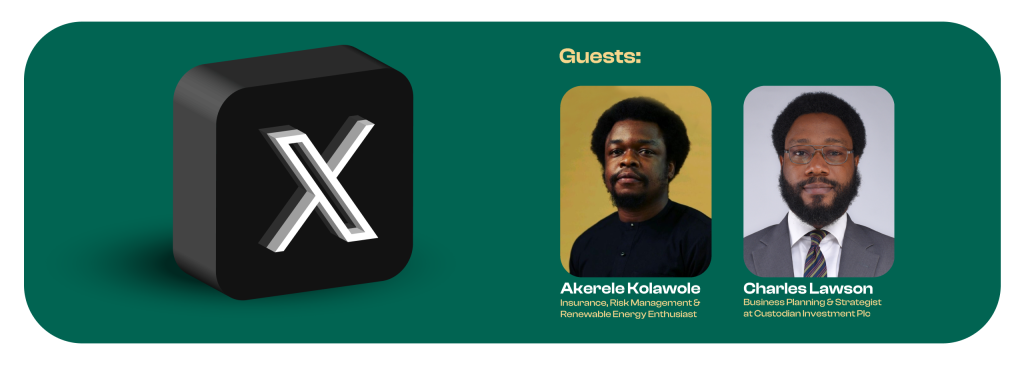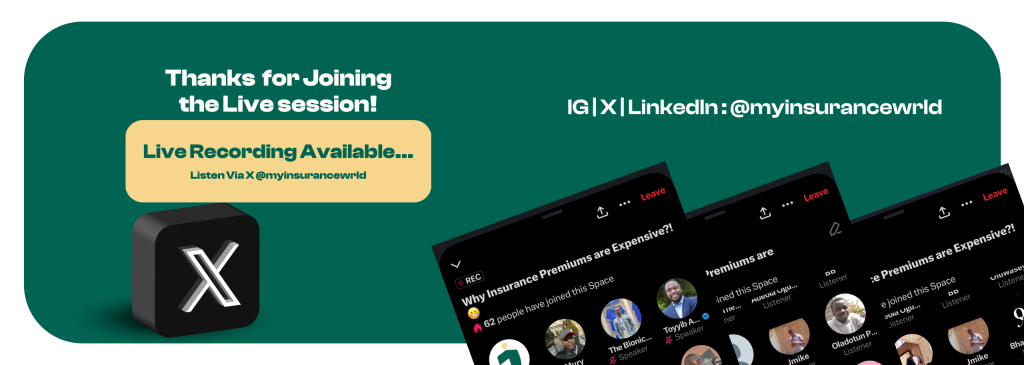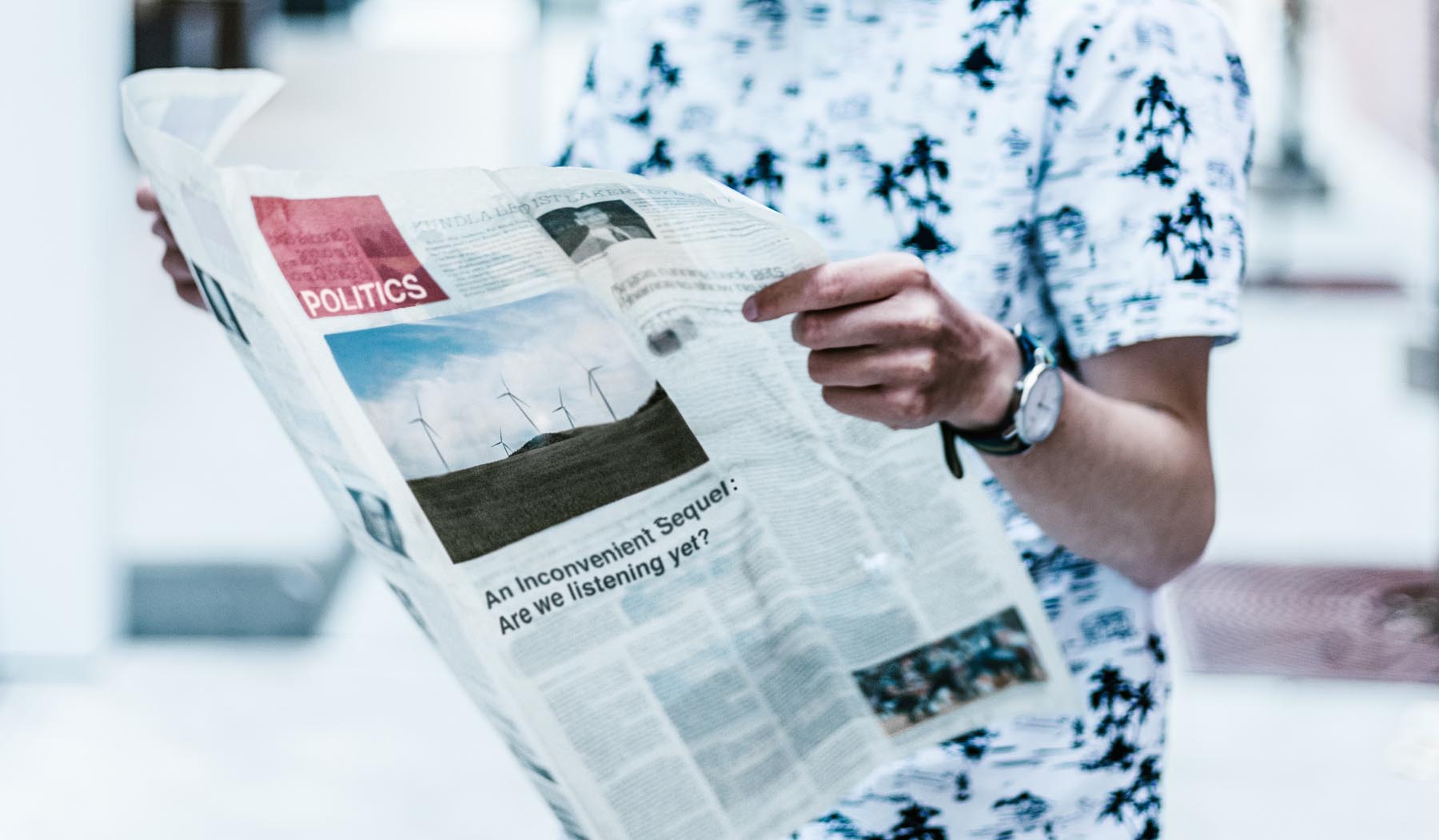HOSTED BY DAVID OWUMI (Head of Communications at Insurance world)


Charles Lawson:
Some policies may seem expensive to average Nigerians while some are not , however the value of the insurance is what should drive the need of buying a policy. Prioritizing your asset through insurance is better.
Also creating awareness and publishing success stories to enable Nigerians to get insurance. Insurance companies collaborating with some unions can also improve insurance awareness.
Akerele kolawole:
Agreeing with Charles, insurance in Nigeria is not classified necessary because there are other priorities like basic needs.
Additionally, insurance in Nigeria is one of the cheapest because people do not buy insurance unless it is mandatory.
To average Nigerians, it is expensive, but compared to other countries, insurance in Nigeria is cheaper. Educating people as to why insurance is important should be prioritized. Educating them through TV's, road shows. The more people are aware, the more they will be willing to get involved
Akerele Kolawole
Toyyib Abuloye:
Using Jos terminal fire as a case study, what do you think is enough to protect your store, cars (Assets)....
Average person think since their assets are fine, they are just wasting their money on insurance companies. Insurance companies should assure clients that their premium is not a waste. A lot of people are not informed on the benefits of the premium they are paying for, a lot of work needs to be done to educate them on insurance, Translating policies in languages they understand will also enable people to get involved.

Charles Lawson:
Government can do a lot with more schemes to support vulnerable people.
Akerele kolawole:
Firstly, it should be about educating people the importance of insurance.
Government subsidies are good but Government incentives are important. Educating people on the importance of protecting their assets. Subsidy without Education won't work because people won't know the benefits of what is being subsidised.
Akerele Kolawole
Toyyib Abuloye:
Nigeria is a very challenging country, so it would be very difficult to subsidise certain insurance. Improving the current system is more important than allocating more money to what we have on ground that people lack awareness too.

- The barest minimum of insurance is health insurance, will premiums be returned if they keep paying for 5 years without any health issues and how can you tailor that to the low income earners?
- Nigeria is a buyers market, the power of buying a policy lies with buyers. Policy premiums can be negotiated. Negotiate what you want or ensure to get something in return of your premium.
2. How do you get people to share their success stories?
- Asking people to share their success stories is important at the point where they are receiving their payments.
3. As a diaspora, which insurance company is reliable, what metrics should I look out for?
- Doing a little bit of research and doing some investigations online.
- Checking the stability of an insurance company online, although not 100% standard, but this will at least put your mind at ease on claim settlement.
4. What plans do you have to go to the locals to introduce insurance to them, How's do you intend to create awareness?
- Collaborating with the locals associations e.g., a mechanic Associations.
- Insurance Agents go around and educate them in their level of understanding.
- Social Internet i.e talking about insurance and their benefits.
Coming down to their level in their language to educate them. Also being creative with how the policies are being educated.
Akerele Kolawole
- Giving free quarterly coverage to few people to create experience which ensure the locals to know the benefits of insuring. Also meeting with prominent people among them to help create awareness.
5. In what ways are regulators helping in creating awareness. What are they doing and what can they do
- They are supporting through media engagement and through government collaborations
- Creating partnership with government and other entities.
They have to empower insurance companies and then take front seat only when issues occurs. They should be involved but not necessary take full control.
Akerele Kolawole







